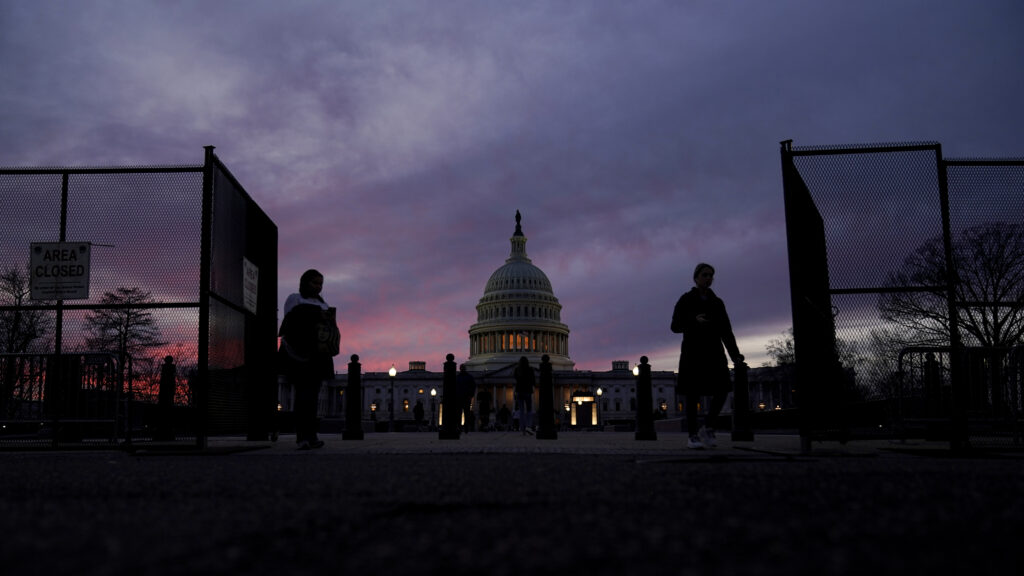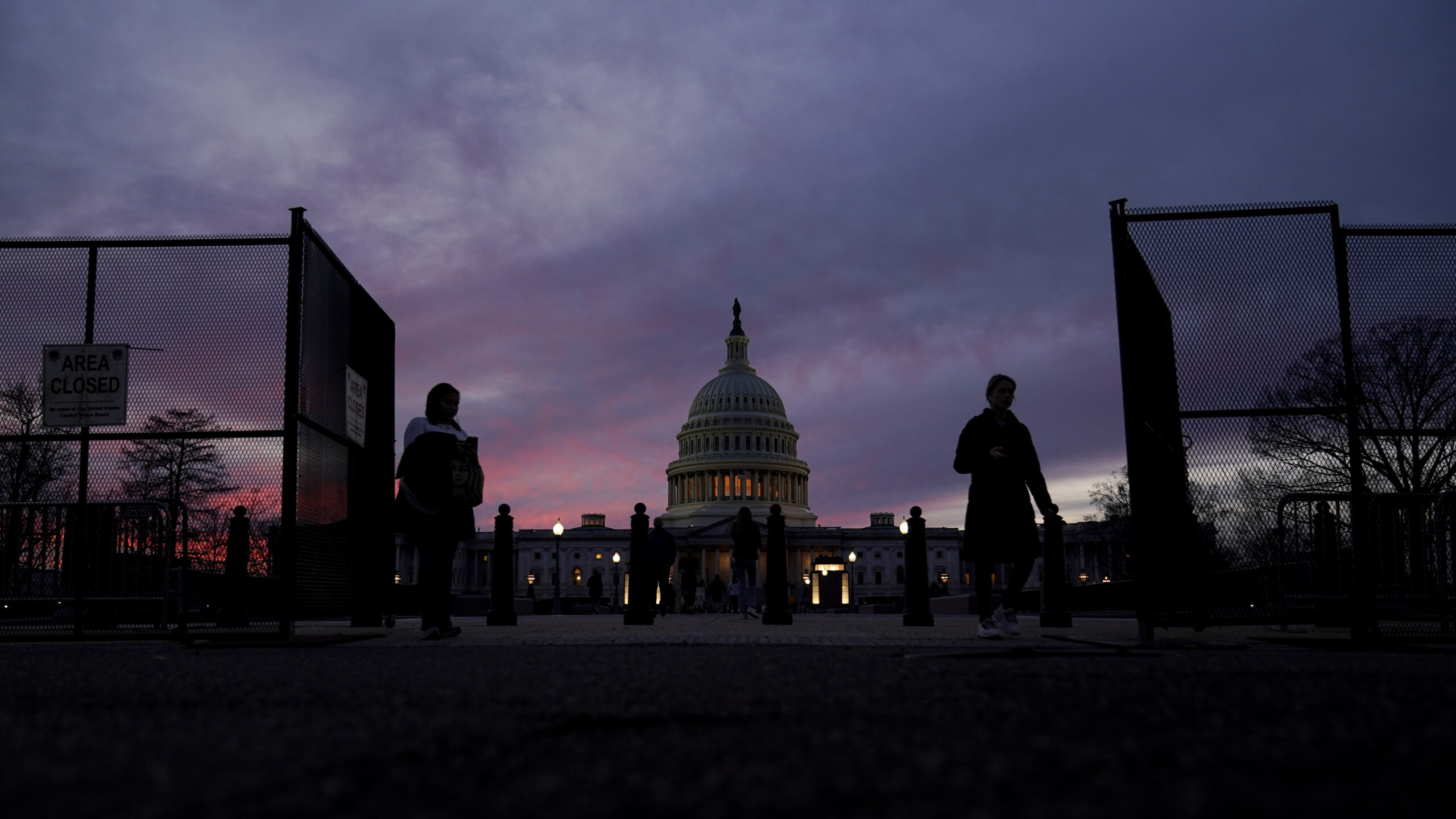WASHINGTON (AP) — President Joe Biden will outline some new steps Tuesday night to go after illegal drugs, help veterans and cancer patients, and provide more access to mental health care during his State of the Union address.
It will be a somewhat new version of steps Biden outlined in these four areas during last year’s speech at the U.S. Capitol. He called it a “unity agenda,” saying the issues are ones that lawmakers and the public could unite around regardless of political affiliation.

Biden will offer the message during his address tonight, according to aides who previewed the details before the speech. He will offer his outline before an audience that will include special guests of First Lady Jill Biden. Among them, the parents of Tyre Nichols, who died last month after a brutal beating by Memphis police. Along with Nichols’ parents, the White House says the guests include:
Deanna Branch (Milwaukee, Wisconsin)
Branch shared her family’s experiences with lead exposure with Vice President Harris in Milwaukee in 2022 and at the White House in 2023. Branch is working to build a lead safe environment for her community after her son Aidan battled lead poisoning as a result of unsafe levels of lead in their drinking water and home. She and her two sons had to move out of the house that they loved because it was no longer a safe environment to raise a family. Through historic levels of funding from the Bipartisan Infrastructure Law and American Rescue Plan, and using additional tools across federal, state, and local governments, the Biden-Harris Administration is working to replace all lead service lines in America in the next decade.
Maurice “Dion” Dykes (Knoxville, Tennessee)
Dykes is currently training to fulfill his dream of becoming a teacher through a teacher Registered Apprenticeship program, one of the pathways supported by Tennessee’s Grow Your Own strategic efforts. Approved by the U.S. Department of Labor in 2022 with support from the American Rescue Plan, Tennessee’s teacher Registered Apprenticeship programs have helped the state establish no-cost pathways to the teaching profession. Dykes spent the first 25 years of his career working in graphic design. In 2022, the First Lady met Dykes during a visit to Sarah Moore Greene Magnet Academy to highlight ways states and school districts are recruiting and preparing qualified educators for the classroom.
Darlene Gaffney (North Charleston, South Carolina)
Gaffney was diagnosed with Stage 2 Breast Cancer in March 2015. A cancer survivor, she joined Mount Moriah Missionary Baptist Church’s Cancer Support Ministry because she wanted to use her own experience to educate others in her church and community about the importance of early detection and getting recommended cancer screenings. In 2021, the First Lady met with Gaffney at Medical University of South Carolina (MUSC) Hollings Cancer Center during a visit to promote breast cancer awareness. In February 2022, the President and First Lady reignited the Cancer Moonshot initiative, setting ambitious goals to end cancer as we know it.
Saria Gwin-Maye (Cincinnati, Ohio)
Gwin-Maye is as an ironworker and member of Ironworkers Local 44 in Cincinnati, Ohio. In 2023, she introduced the President at the Brent Spence Bridge in Covington, Kentucky, which is receiving a major investment thanks to the President’s Bipartisan Infrastructure Law. Ironworkers like Gwin-Maye, and other union workers will get the opportunity to do work repairing Brent Spence Bridge and on other significant projects nationwide as a result of the Bipartisan Infrastructure Law.
RowVaughn and Rodney Wells (Memphis, Tennessee)
RowVaughn and Rodney Wells are the mother and stepfather of Tyre Nichols, a 29-year old unarmed Black man who was severely beaten by multiple police officers during an alleged traffic stop in Memphis, Tennessee. Nichols was hospitalized afterwards and died three days later as a result of his injuries. President Biden has made clear that we must take action to prevent tragedies like this from ever happening again. In addition to signing an executive order last year, the President continues to call on Congress to send the George Floyd Justice in Policing Act to his desk.
Dr. Rahul Gupta, director of the Office of National Drug Control Policy, said Biden would outline a “forceful approach” for going after fentanyl and expanding public health efforts to reduce deaths by drug overdose. That includes using advanced technology to seize fentanyl at the border and working with commercial delivery companies to intercept packages, among other steps, he said.
Biden will ask Congress to reauthorize the National Cancer Act, which was enacted more than a half century ago, to help update U.S. cancer research and care systems.
The president will address suicide among veterans by helping states and territories invest in community-based programs and expand educational resources.
In the area of mental health, particularly for children, Biden will again call on Congress to support banning online advertising targeted to young people and to improve data privacy and transparency across the board. Biden included these protections in his agenda last year, but Congress has not yet passed legislation to address it. He’ll also discuss ways to connect more people to mental health care.








